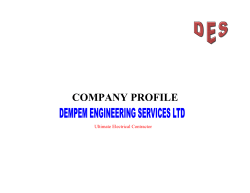
The UNEX® Advantage Innovation
White Paper: Increase Efficiencies in Assembly & Parts Picking Roller Rack Span-Track®-Ready Framework by UNEX® Innovation • Focus • Quality The UNEX® Advantage Innovation • 40+ years developing products and solutions • Over 25 patents granted Focus • Gravity throughput solutions for order selection and assembly operations Quality • UNEX manufactured products backed by our Seven Year Platinum Warranty UNEX® Manufacturing, Inc. 50 Progress Place, Jackson, NJ 08527 732-928-2800 • 1-800-695-SPAN (7726) FAX: 732-928-2828 Email: span@unex.com www.unex.com Note: This product is designed for indoor use only. Do not expose components to water or cleaning solutions. Do not store this product outside. The products in this brochure may be covered by one or more of the following UNEX® Manufacturing, Inc. United States Patents: US 4,108,304; US 4,721,203; US 5,474,412; US 5,951,228; US Des. 423,748; US 6,102,185; US 6,132,158; US 6,510,935 B1; US Des. 482,075; US Des. 482,404; US Des. 482,405; US Des. 482,406; US Des. 482,732; US Des. 482,733; US Des. 482,734; US Des. 484,545; US RE38,517 E Increase Efficiencies in Assembly & Parts Picking Lean Manufacturing is a discipline to eliminate waste in a process, operation or function. One of the most basic areas in which a Manufacturer should apply Lean principles is the storage mediums used for assembly and parts picking. Dynamic vs. Static Storage The illustration below details the benefits of utilizing Dynamic Storage Units in these areas. Flow Cells for line side storage or workcells, and Carton Flow Units in general storage/supermarket areas are examples. Static Storage options would be shelving, wire decking, containers and pallets. • HEAD & SHOULDER CLEARANCE WASTED SPACE D ZO • POOR VISIBILITY DEA • INACCESSIBLE WASTED SPACE NE STATIC - SHELF • UNSAFE PICKS • LIFO STOCK ROTATION DYNAMIC - CARTON FLOW • EXTRA LEVELS, INCREASED FACINGS • FULL DEPTH STORAGE • SAFE, ERGONOMIC PICKS • PRODUCT ALWAYS UP FRONT • EASY TO RESTOCK • FIFO STOCK ROTATION A properly designed Dynamic Storage Unit can increase space utilization by 50% and increase pick rates up to 30%. Dynamic Storage Units also improve the picking ergonomics reducing injury and fatigue. Dynamic Storage Design Criteria • Dynamic Storage Units should be modular built around the specific needs of an operation or process • Reconfigurable units provide maximum flexibility to accommodate line and process change • Storage Structure needs to be durable and present clear sightlines • Apply ergonomic principles to structure design - Minimize reach distances - Increase pick access – angle parts towards picker - Replenishment should not interfere with process or operation - Configure units to hold enough product for a shift - Use return lanes to keep boxes, totes off factory floor • Choose the right Carton Flow – flow characteristics, capacity and flexibility vary considerably by type (Full Width Roller, Gravity Conveyor, and plastic wheel). For carton flow the key performance criteria is restart, ensuring all product in the lane moves forward when front product is picked. The more product contact to carton flow surface the better the restart. • Factor in ease of installation – to install a particular unit can vary from less than an hour to a full day. Incorporating Dynamic Storage Units into a Manufacturing Operation is a low cost solution. The units are easy to install with minimal disruption to an operation. Bottom Line impact is immediate providing a quick payback and increased flexibility. Adding Pick to Lights (PTL) Manufacturers should consider adding Pick to Light systems to Dynamic Storage Units when the following conditions exist in an operation: • Extensive parts picking - supermarket or general storage • Picking critical parts • Operations or processes with high error rates • Items where cost of mispick is high Traditional PTL Systems are designed for large distribution centers and warehousing operations. These systems have very robust order functionality capabilities and carry a high price tag. Most of these functions are of minimal use to Manufacturing. When considering a PTL system ensure the system has been designed specifically for Manufacturing and Assembly operations. PTL system options range from a stand alone operation, controlling the lights to pick for a specific area, to a real-time integrated system. PTL systems can also interface with machines (PLC’s), scanners, RFID readers or other serial devices. Numerous functions such as pick verification, pick sequence, and zone controls can be incorporated into the system. A properly designed PTL System increases productivity and can reduce errors up to 85%.
© Copyright 2025





















